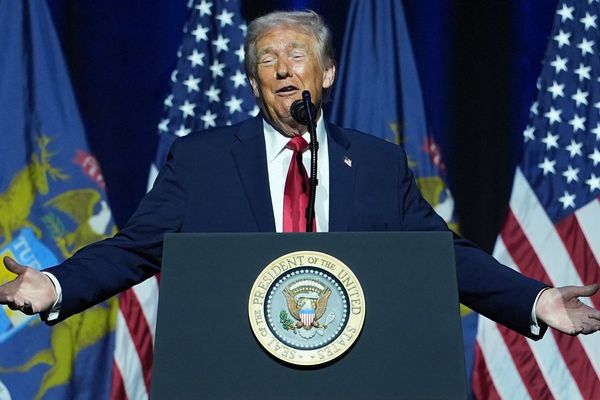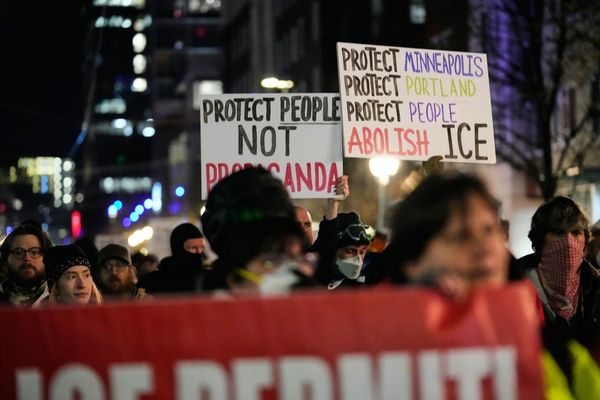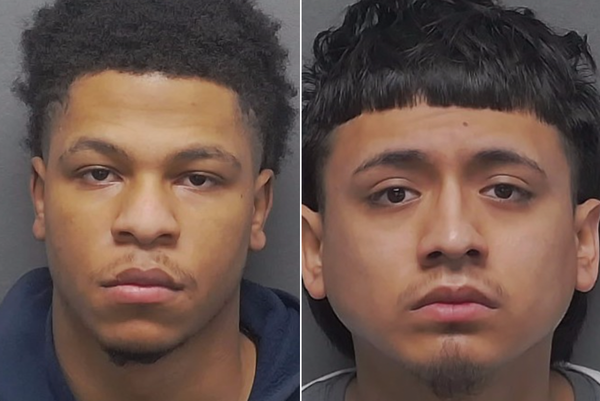BALTIMORE — Wes Moore, whose vibrant and organized campaign catapulted him from outsider candidate to a rising star in Democratic politics, will be Maryland’s next governor, the first Black person to lead the state and only the third Black elected governor in U.S. history, based on The Associated Press call of the race as the polls closed.
Moore defeated Republican Del. Dan Cox to return the state capital to full Democratic control after eight years of Republican Gov. Larry Hogan, setting the stage for a new progressive era in Annapolis and a potentially bright political future for the ambitious Moore.
In early returns at 9:20 p.m., Moore led Cox 67% to 30%. Campaign spokespeople for both Moore and Cox declined to comment after the AP call, though attendees at Moore’s party at the Marriott Waterfront in Baltimore were celebrating.
“I could not be more thrilled about what’s happening tonight,” Maryland Senate President Bill Ferguson said.
His counterpart, House of Delegates Speaker Adrienne A. Jones, the first Black leader of either of Maryland’s legislative chambers, said, “We made history.”
Hogan, who refused to endorse Cox, said in a statement Tuesday night that he had spoken to Moore and congratulated him on his victory.
“Our team is committed to ensuring a smooth and orderly transition to the next administration, and I look forward to meeting with the governor-elect in the coming days,” Hogan added.
At Cox’s party in Annapolis, Ted Bryant, chair of the Dorchester County GOP Central Committee, said he wasn’t concerned the race had been called for Moore.
”It’s a ploy,” Bryant said. “These elections aren’t always what they make it out to be.”
Moore, of Baltimore, has traveled a winding path to the peak of state politics.
Moore is a graduate of Valley Forge Military School in Pennsylvania, Johns Hopkins and then Oxford University as a Rhodes scholar. He worked as an investment banker in London and New York City, spent a year at the State Department as a White House fellow, led paratroopers in the 82nd Airborne Division in Afghanistan, became a bestselling author, started a production company and a business to help students, and ran one of the country’s largest anti-poverty nonprofits.
After attempts to recruit him for offices such as Baltimore mayor and U.S. representative since he returned to Baltimore a decade ago, Moore has said he felt he could make the largest impact as governor.
His platform has included plans to invest heavily in child care, job retraining and apprenticeship programs, public transportation, education and more. With slogans like “work, wages and wealth” and “leave no one behind,” he sought to appeal to a wide range of voters, who often cited his charisma and energy as reasons they supported him.
He also proved to be a prolific fundraiser, raising and spending millions as he garnered national media attention for his campaign and his potential future in national politics.
Cox, a 48-year-old first-term delegate from Frederick County, offered voters a conservative platform of reducing taxes, giving parents more control over school curriculum and vowing not to restore pandemic protections such as business shutdowns or mask and vaccine requirements. After eight years of Hogan’s brand of moderate conservatism, Cox’s stances and his loyal support of former President Donald Trump made winning statewide — where Democrats outnumber Republicans 2-1 — an unlikely outcome.
Cox, who had not committed to accepting the results of the election, had not conceded as of 9:15 p.m. Tuesday.
Moore will likely enter Annapolis next year with Democrats retaining a supermajority in the General Assembly, giving his party significant powers to pass legislation they support. All 188 seats were on ballots across the state this week.
At Moore’s party in Baltimore, a vast ballroom was packed shoulder to shoulder, and hundreds of people erupted in cheers and danced to “Celebrate” when the AP call was announced.
U.S. Rep. Anthony Brown, Del. Brooke Lierman and U.S. Sen. Chris Van Hollen — whom AP also dubbed a winner against Republican challenger Chris Chaffee to another six-year term — were also there.
“This has been a good, good day for Maryland and all Marylanders and every part of our state,” Van Hollen said.
U.S. House Majority Leader Steny Hoyer told the crowd, “Millions of Marylanders saw Wes Moore as somebody who will lift us up, someone who will lead us.”
While the final turnout numbers won’t be available for days, roughly 1 in 5 registered active voters used early in-person voting or mail-in ballots before Election Day.
Maryland election officials were planning on a faster ballot-counting process than in the primary, when local election workers were barred from processing mail-in ballots until two days after primary day — delaying results in some races by days or weeks.
A judge’s ruling last month allowed election workers to begin processing those ballots when they received them. Eleven of the state’s 24 voting jurisdictions opted to take advantage of the early processing, including in the large jurisdictions of Baltimore City and the counties of Baltimore, Frederick, Howard, Montgomery and Prince George’s.
Results will continue to be updated for weeks as mail-in ballots postmarked by Tuesday can be received until Nov. 18, and the canvassing of provisional ballots will begin Nov. 16. The results cannot be certified before Nov. 18, according to the State Board of Elections.
(Baltimore Sun Media reporters Hannah Gaskill, Lee O. Sanderlin and Lorraine Mirabella contributed to this report.)







